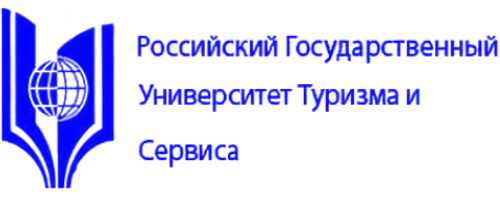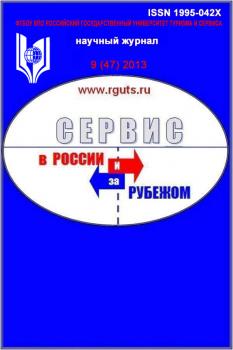Sankt-Peterburg, Russian Federation
A large-scale crisis of tour operators working in the sphere of outgoing tourism caused the necessity to change the format of work. Tour operators, focused on outbound tourism, began to look for a proposal in the domestic market, which has not yet been formed. Host companies are also in the process of formation, especially in remote regions. Some services may be provided by only one manufacturer, some of them are associated with common infrastructure and socio-economic situation of the territory. At the moment, there are practically no integrated promotion and institutional management systems. The state strategy for the development of domestic tourism is aimed at supporting local initiatives in regional destinations, but investing in an indefinite segment is very difficult. Accordingly, the study and formation of consumer demand in the domestic market, the attitude of potential consumers to the Russian tourism product, the pricing policy when forming regional tourist products taking into account socio-demographic and geographical factors are the primary marketing tasks of receptive tour operators, cluster strategy developers and other private initiatives of tourism areas.
tourism product, tourism region, tourism destination
1. Mikos von Rohrscheidt A. Scientific centres and researchers of cultural tourism in Poland // Turystyka Kulturowa. 2014. No. 10. P. 123-140.
2. Kaczmarek J. Tourists' dances on urban stage - measure and management of tourist flows // ATLAS Annual Conference 2016. Tourism, Lifestyles and Locations Canterbury, United Kingdom 4-16 September, 2016. R. 70.
3. McCool S.F., Moisey R.N. Tourism, Recreation and Sustainability: Linking Culture and The Environment. Wallingford: CABI Publishing. 2009.
4. Middleton V.T.C. Adopting an agreed common language for tourism and the visitor economy // Tourism Society Journal. 2015. No.162. Pp. 12-13.
5. Nowakowska A. Problemy i konflikty rozwoju turystyki. W: Turystyka w Polsce w okresie kryzysu / Red. nauk. A. Jeziorska i K. Łopaciński. Warszawa: Polskie Stowarzyszenie Turystyki, 2011. Pp. 27-43.
6. Vladykina Yu.O. Metodologicheskie osnovy sozdaniya turistsko-rekreacionnogo klastera v Novosibirskoy oblasti // V mire nauchnyh otkrytiy. 2015. №11.7(71). S. 2703-2720.
7. Golubchikov Yu.N. Chem zavlech' turista v glubinku Rossii? // Sovremennye problemy servisa i turizma. 2015. №3. S. 12-17. DOI:https://doi.org/10.12737/12877.
8. Zhirnel' E.V., Tolstoguzov O.V. Regional'nyy turistskiy rynok: problemy ocenki i upravleniya // Sovremennye problemy nauki i obrazovaniya. 2011. №6. S. 1-8.
9. Lapshin V.Yu., Lapshina I.M. Marketingovoe upravlenie v obespechenii ustoychivogo i bezopasnogo razvitiya lokal'noy turistskoy destinacii // Social'no-ekonomicheskie yavleniya i processy. 2014. T.9. Vyp. 2. C. 67-71.
10. Rozumnaya N.V. Sovremennye napravleniya innovacionnogo razvitiya marketingovyh kommunikaciy // Uspehi sovremennoy nauki i obrazovaniya. 2016. T.3. №9. S. 80-82.
11. Ustyugova E.V. Sovershenstvovanie upravleniya kachestvom turistskogo produkta s ispol'zovaniem marketingovyh instrumentov // Transportnoe delo Rossii. 2011. Vyp. 4. S. 23-31.
12. Rozumnaya N.V., Chaschina Yu.V. Razvitie i sovershenstvovanie organizacionnyh struktur upravleniya deyatel'nosti predpriyatiy turindustrii // Novaya nauka: problemy i perspektivy. 2016. №6-1(85). S. 212-214.





